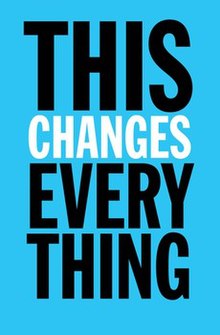Capitalism is an economic system based on the private ownership of the means of production and their operation for profit. Central characteristics of capitalism include capital accumulation, competitive markets, price systems, private property, property rights recognition, voluntary exchange, and wage labor. In a market economy, decision-making and investments are determined by owners of wealth, property, or ability to maneuver capital or production ability in capital and financial markets—whereas prices and the distribution of goods and services are mainly determined by competition in goods and services markets.

Naomi Klein is a Canadian author, social activist, and filmmaker known for her political analyses; support of ecofeminism, organized labour, criticism of corporate globalization, fascism and capitalism. In 2021, Klein took up the UBC Professorship in Climate Justice, joining the University of British Columbia's Department of Geography. She has been the co-director of the newly launched Centre for Climate Justice since 2021.
Eco-capitalism, also known as environmental capitalism or (sometimes) green capitalism, is the view that capital exists in nature as "natural capital" on which all wealth depends. Therefore, governments should use market-based policy-instruments to resolve environmental problems.

Nancy Fraser is an American philosopher, critical theorist, feminist, and the Henry A. and Louise Loeb Professor of Political and Social Science and professor of philosophy at The New School in New York City. Widely known for her critique of identity politics and her philosophical work on the concept of justice, Fraser is also a staunch critic of contemporary liberal feminism and its abandonment of social justice issues. Fraser holds honorary doctoral degrees from four universities in three countries, and won the 2010 Alfred Schutz Prize in Social Philosophy from the American Philosophical Association. She was President of the American Philosophical Association Eastern Division for the 2017–2018 term.

Criticism of capitalism is a critique of political economy that involves the rejection of, or dissatisfaction with the economic system of capitalism and its outcomes. Criticisms typically range from expressing disagreement with particular aspects or outcomes of capitalism to rejecting the principles of the capitalist system in its entirety.

Metabolic rift is a theory of ecological crisis tendencies under the capitalist mode of production that sociologist John Bellamy Foster ascribes to Karl Marx. Quoting Marx, Foster defines this as the "irreparable rift in the interdependent process of social metabolism". Foster argues that Marx theorized a rupture in the metabolic interaction between humanity and the rest of nature emanating from capitalist agricultural production and the growing division between town and country.
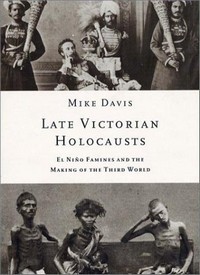
Late Victorian Holocausts: El Niño Famines and the Making of the Third World is a book by Mike Davis about the connection between political economy and global climate patterns, particularly the impact of colonialism and the introduction of capitalism during the El Niño–Southern Oscillation related famines of 1876–1878, 1896–1897, and 1899–1902 across multiple continents. The book's main conclusion is that the deaths of 30–60 million people killed in famines all over the world during the later part of the 19th century were caused by the laissez-faire and Malthusian economic ideology of the colonial governments.

A technological fix, technical fix, technological shortcut or (techno-)solutionism refers to attempts to use engineering or technology to solve a problem.
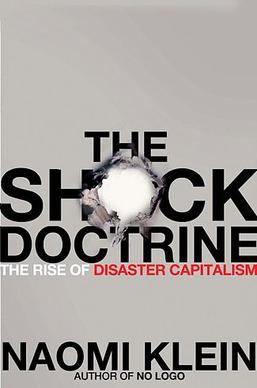
The Shock Doctrine: The Rise of Disaster Capitalism is a 2007 book by the Canadian author and social activist Naomi Klein. In the book, Klein argues that neoliberal free market policies have risen to prominence in countries and regions such as the United States, the United Kingdom, China, the European Union, and Eastern Europe, because of a deliberate strategy of "shock therapy". This centers on the exploitation of national crises to establish controversial and questionable policies, while citizens are too distracted to engage and develop an adequate response and resist effectively. The book advances the idea that several man-made events, such as the Iraq War, were undertaken with the intention of pushing through unpopular free market capitalist policies in their wake.
The following events related to sociology occurred in the 1980s.

Mariana Francesca Mazzucato is an Italian–American-British economist and academic. She is a professor in the Economics of Innovation and Public Value at University College London (UCL) and founding director of the UCL Institute for Innovation and Public Purpose (IIPP). She is best known for her work on dynamics of technological change, the role of the public sector in innovation, and the concept of value in economics. The New Republic have called her one of the "most important thinkers about innovation".

Eric M. Klinenberg is an American sociologist and a scholar of urban studies, culture, and media. He is currently Helen Gould Shepard Professor in Social Science and Director of the Institute for Public Knowledge at New York University. Klinenberg is best known for his contributions as a public sociologist.

The Racket: A Rogue Reporter vs. the Masters of the Universe is a 2015 book by British investigative journalist Matt Kennard.

This Changes Everything is a 2015 documentary film directed by Avi Lewis. It is based on the book This Changes Everything: Capitalism vs. the Climate by his wife, Naomi Klein.

Roy Scranton is an American writer of fiction, non-fiction, and poetry. His essays, journalism, short fiction, and reviews have appeared in The New York Times, Rolling Stone, The Nation, Dissent, LIT, Los Angeles Review of Books, and Boston Review. His first book, Learning to Die in the Anthropocene was published by City Lights. His novel War Porn was released by Soho Press in August 2016. It was called "One of the best and most disturbing war novels in years" by Sam Sacks in The Wall Street Journal. He co-edited Fire and Forget: Short Stories from the Long War. He currently teaches at the University of Notre Dame, where he is the director of the Environmental Humanities Initiative.
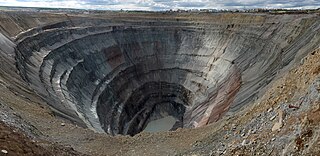
Extractivism is the removal of natural resources particularly for export with minimal processing. This economic model is common throughout the Global South and the Arctic region, but also happens in some sacrifice zones in the Global North in European extractivism. The concept was coined in Portuguese as "extractivismo" in 1996 to describe the for-profit exploitation of forest resources in Brazil.
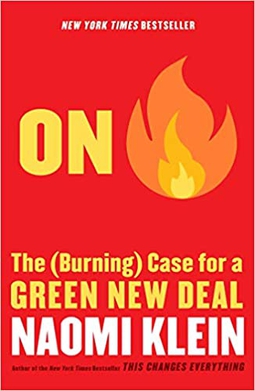
On Fire: The (Burning) Case for a Green New Deal is Naomi Klein's seventh book, published in September 2019 by Simon & Schuster. On Fire is a collection of essays focusing on climate change and the urgent actions needed to preserve the planet.

A Planet to Win: Why We Need a Green New Deal is a 2019 book arguing for the importance of a Green New Deal and describing political and societal steps to achieving one.
Julie Sze is Professor of American Studies at University of California, Davis. Her research deals with environmental justice, inequality and culture; race, gender and power; and community health and activism.
Blockadia is a global anti-extractivism movement; and a roving, transnational conflict zone where everyday people obstruct development of extractive projects, especially in the fossil fuel industry. Blockadia resistance movements differ from mainstream environmentalism by use of confrontational tactics such as civil disobedience, mass arrests, lockdowns, and blockades to contest perceived threats arising from extractivist projects’ contributions to global climate change and local environmental injustice. Some researchers have concluded that Blockadia contributes to a transition toward a more just society.
